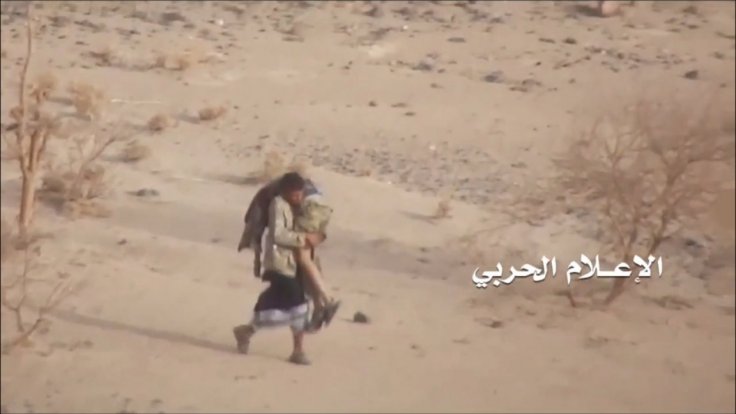
Several media outlets and social media commentators in Yemen and other Arab countries have expressed concerns amid increasing allegations against the Yemeni government's role and its links with terrorist outfits Al Qaeda and ISIS.
The allegation of cooperation between Al Qaeda and IS on the one hand and the UN-recognised government on the other, assumed significance after an internationally wanted IS leader Abu al-Bara al-Baidani was seen attacking the forces of Southern Transitional Council (STC), a separatist group in the south of Yemen, alongside the forces of President Abdrabbuh Mansur Hadi in the oil-rich province of Shabwa.
The Shabwa Elite Forces belonging to the STC, in fact, arrested the terrorist during the confrontation, said a statement.
Commenting on the last week incident, a Yemeni journalist Fahad Abdul Rahman Al Anzi tweeted: "Big mistake made by the legitimacy of Yemen. The appearance of Abu al-Bara al-Baidani, the leader of ISIS in Yemen, was appearing in Shabwa fighting with the legitimacy army. Abu al-Bara was arrested tonight by the Southern Elite Forces in Shabwa."
According to media reports, the infiltration of terrorists in the Yemen government was a direct result of the influence of the Muslim Brotherhood's Yemeni arm Al Islah, from whose ranks most of the Al Qaeda and IS elements came.
Several media outlets also published pictures of known Al Qaeda terrorists fighting against the STC in different parts of Shabwa alongside Al Islah fighters.
President office spokesman Yasar Al Hosaini, however, claimed the attacks against STC forces were mounted by the Yemeni Army, but pictures of Al Qaeda fighters wearing Afghani clothes assaulting STC had appeared in the media by then.
Despite repeated denials of Yemen about the presence of Al Qaeda members, Ansar al-Sharia, a terrorist umbrella that includes Al Qaeda in the Arabian Peninsula (AQAP), in a statement claimed its role in the attack on the STC forces.
Ceasefire
Meanwhile, the Southern Transitional Council has declared a ceasefire with government forces in Shabwa after two days of fighting and called on its forces to remain in their positions and maintain control over the institutions and property they overtook.
"The Southern Transitional Council (STC) calls upon all parties in the Shabwa governorate to exercise restraint and abide by the ceasefire called for by the Arab coalition," the council said in a statement on Saturday.
The United Arab Emirates-backed separatists earlier this month took over the southern port city of Aden, the interim capital of the Saudi-backed government, and last week extended their control to neighbouring Abyan.
Both sides are part of a Saudi-led coalition that intervened in Yemen in 2015 against the Iran-aligned Houthi group that ousted the Hadi government from power in the capital Sanaa in 2014.
But the STC, who seek self-rule in the south, turned on the government after accusing a party allied to Hadi of being complicit in a Houthi attack on southern forces.
Saudi Arabia has called for a summit to end the standoff, which has complicated UN efforts to end the war in Yemen, but Hadi's government said it would not participate until the separatists cede control of sites they have seized.
The standoff has exposed differences between regional allies Saudi Arabia and the UAE, which in June scaled down its presence in Yemen while still backing thousands of southern separatist fighters.
(With additional inputs from Reuters)








